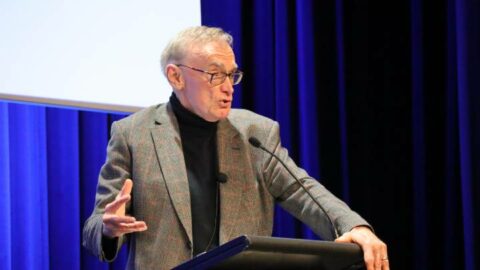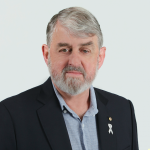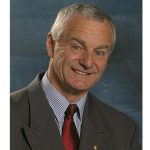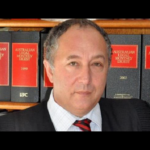The Sluggish Demise of Drug Prohibition Is Gaining Momentum
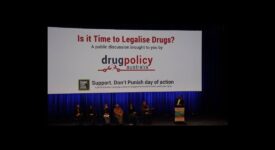
Right before the pandemic shut down shifted the focus of concern, NSW drug policy was under scrutiny with the then Berejiklian government baulking at pill testing trials to address drug-related deaths at events and rather attempting to shut down the festival industry as a response.
Then NSW premier Gladys Berejiklian further commissioned the Special Commission of Inquiry into the Drug Ice. However, two and a half years after it delivered 109 recommendations, the Coalition government is yet to respond, and any modest proposals raised have been shot down by cabinet.
So, it’s against this backdrop that Drug Policy Australia held the Is It Time to Legalise Drugs? forum in Sydney, with a lineup of speakers representing some of the heavyweights in the drug law reform space, who came together to discuss the long recognised need to end a century of drug prohibition.
“I’m among the hundreds of thousands of Australians, who have been charged with drug offences,” said Drug Policy Australia managing director Greg Chipp. “I’m unapologetic for my drug use. I’m one of the millions of Australians who say no to the laws that inhibit the use of psychoactive substances.”
Chipp added that he was speaking “on behalf of the disenfranchised who use drugs and will continue to use drugs regardless of the laws”, as he highlighted that drug prohibition is the “source of untold suffering, the persecution of vulnerable members of society and the lifeblood of criminal networks.”
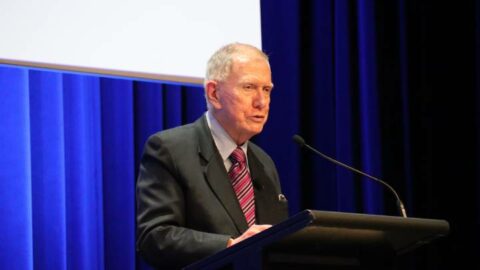
A scourge on human rights
Former High Court Justice Michael Kirby addressed the 23 June crowd. Having served at the highest level as well as the NSW criminal appeals court, Kirby came to the conclusion that punitive drug laws need to be overhauled so that the approach taken to illicit substances aligns with human rights law.
The former judge outlined that he’s a drug-free person, but he understands the predicament of people who use drugs, as once he realised he was gay, he was faced with a since revoked system of laws that penalised people due to their sexual orientation and gender identity.
Kirby then explained that a small group of mid-19th century alcohol prohibitionists in the US state of Maine ultimately led to the League of Nation’s 1925 International Opium Convention, which placed global restrictions on non-medicinal trade in opium, cocaine and cannabis.
When the Universal Declaration of Human Rights “came into force, the world was faced with the visible example of a conflict which it hasn’t yet been able to resolve,” Kirby explained. This involves “the pathway of prohibition, criminal law and sanctions and the pathway of universal human rights”.
The jurist outlined that this conflict came to a head in the 1980s with the AIDS epidemic, when it was understood that in order to reduce the HIV crisis, the state would have to soften its prohibitionist stance via the provision of clean injecting equipment to people who inject drugs.
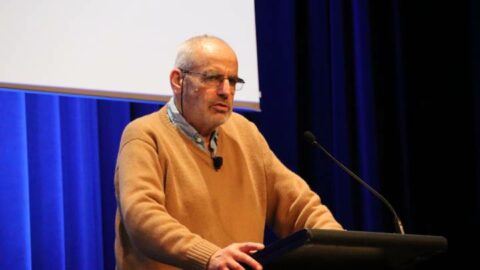
The escalating death of the drug war
Harm Reduction Australia ambassador Dr Alex Wodak was key in bringing about the shift to drug harm reduction as the HIV crisis was about to hit in 1986, when he set up an illegal needle and syringe exchange in Sydney, which eventually resulted in the nationwide rollout of legal exchanges.
“The question for us tonight… is being asked now because the international drug control system is clearly and irretrievably broken,” Wodak said as he stood before the forum. “We all know it, and we’ve known for a long time that the harms of prohibition far outweigh any benefits.”
The doctor pointed to two reasons that reveal the drug war has failed. The first is that over the period of prohibition, the drug market has “been steadily expanding and getting more dangerous”, with large quantities of new drugs appearing that are much more problematic than the old ones.
The second point is that drug policy isn’t working because “death, disease, corruption and violence have been increasing over recent decades”. Wodak outlined that in 1964, there were only six heroin overdose deaths in this country, but in a recent year, there were over 1,800 drug-related deaths.
Drug prohibition is slowly dying, according to the doctor, and eventually its death will speed up.
Looking back over the last decade, this escalation can be seen as increasing numbers of jurisdictions globally legalise cannabis, especially in US states as that nation instigated of prohibition, while Oregon has now joined Portugal in decriminalising drugs and our nation’s capital is about to follow.
Fair treatment
Uniting NSW and ACT head of advocacy Emma Maiden told the forum that her church doesn’t support drug legalisation, but it does support decriminalisation: the removal of criminal penalties for personal possession and use of all illicit substances.
Uniting launched the Fair Treatment decriminalisation campaign in 2018, with a long list of civil society groups in support of it, including the NSW Bar Association and NSW Council for Civil Liberties.
“We did independent polling in six NSW seats,” said Maiden, “which showed even in the most conservative seat of Baulkham Hills, if someone is caught with a small amount of ice, 54 percent think they should only have a caution warning or referral to health and education services.”
While executive director of Harm Reduction Australia Annie Madden made clear she’s sick of waiting for politicians to act and called on people who use drugs to speak up. She added that prohibition laws have been shown as “fundamentally racist”, which is much of the reason for their enactment.
First Nations people “use less drugs as a group than non-Indigenous Australians,” Dr Madden continued, “but they’re ten times more likely to be incarcerated and eight times more likely to overdose. That picture is repeated in every single First Nations community across the world.”
“A route we can take”
In 2001, former NSW premier Bob Carr introduced the Uniting Medically Supervised Injecting Centre into Kings Cross. He explained that he’d been ready to take a zero-tolerance approach to drugs when he was in opposition, but conversation with Dr Wodak changed his understanding of the matter.
In terms of bringing about the change from drug prohibition to a legalised and regulated system, Carr, a former Australian foreign affairs minister, explained that engaging global politicians with the evidence is the way forward.
The politician told the forum that he would be encouraging current NSW premier Dominic Perrottet to implement the recommendations of the ice inquiry, which the state Coalition government sponsored, especially as there has been no public campaign against what is set out in its final report.
“I don’t think there’s anything in the zeitgeist that should inhibit the premier from taking the public into his confidence and saying, “These options have been recommended in the spirit of harm minimisation… if it doesn’t work, we won’t proceed,” suggested Carr.
